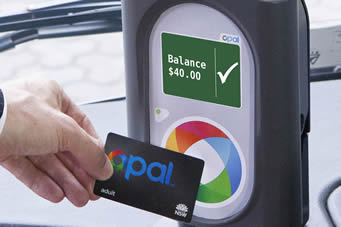The following tweet twooshed its way in:
How about an IH (Intelligent Horse - sic.) blog about repentance and reconciliation vs the populist fetish for apologies?
Demanding an apology almost seems to be a spectator sport these days. There isn't a day that goes by that some person or group isn't demanding a public apology for something. There always seems to be someone who feels slighted somewhere.
The following demands for apologies comes from just yesterday's news headlines:
- A leading child abuse charity yesterday demanded that three senior Labour (UK) figures apologise...
- Seven West Media is demanding an apology from the Australian Federal Police...
- A major Canadian Muslim group is demanding an apology from Prime Minister Harper...
- Chris Hannay is demanding an immediate public apology from Premier Campbell Newman and has instructed his solicitor to issue a Concerns Notice under the Defamation Act...
But what's really going on here? Why are people always feeling slighted? Why the need to demand so many apologies? Part of the reason for this, is to do with the fact that we're all oh so human and incredibly flawed.
Throughout this, I'm going to be using the analogy of a crystal sphere. This crystal sphere is how we view ourselves. Delicate, fragile and oh so breakable; so be careful, lest any two spheres come into contact with each other and scratch, or worse, shatter into a million glittering pieces.
Apology.
The degree of the self-approbation with which every man, upon such occasions, surveys his own conduct, is higher or lower, exactly in proportion to the degree of self-command which is necessary in order to obtain that self-approbation. Where little self-command is necessary, little self-approbation is due. The man who has only scratched his finger, cannot much applaud himself, though he should immediately appear to have forgot this paltry misfortune. The man who has lost his leg by a cannon shot, and who, the moment after, speaks and acts with his usual coolness and tranquillity, as he exerts a much higher degree of self-command, so he naturally feels a much higher degree of self-approbation.
- Adam Smith, The Theory of Moral Sentiments (1759)
Adam Smith who is generally considered to be the father of modern economics with his seminal work
'An Inquiry into the Nature and Causes of the Wealth of Nations' (1776) is perhaps less famous for his previous work
'The Theory of Moral Sentiments' published 17 years earlier. In that book, he speaks not of the economic consequences of people's actions but of their moral and social impact.
Although the language is a little unfamiliar to a lot of modern readers, in the passage above, Smith is telling us that the degree by which someone views themselves as inherently good or virtuous, depends on their level of self-control and the circumstances in which they find themselves.
Indeed it can be said that for all of us, we mostly view ourselves as nominally good. If you ask most people as to why they think that they should go to heaven for instance, people are likely to answer that they've been a
"good person", whatever that means.
Yet humans have an incredible ability for self-delusion. Although we like to view ourselves as inherently good or virtuous, the reality is that probably for most of the time, were likely to be self interested and or outright selfish. Smith even goes onto to say that rational self-interest is the basis upon which economies run.
The problem then is all of us are going about the place, feeling good and virtuous about ourselves; and so called "rational" self-interest isn't. We can very easily feel as though we're made of some precious sphere of crystal and demanding at the very least a statement that someone else feels contrition for disturbing that pretty little sphere, is in some way an attempt to restore our own picture of ourselves.
An apology is after it is said and done, nothing really more than statement of remorse. Often, by demanding an apology, we really don't want a mere statement, we want the other party to feel the same sort of slight that we feel; sometimes to be compensated monetarily for that slight.
An apology though, is only a statement. By its nature, it doesn't necessarily restore that which has been damaged. It is an acknowledgement that a crystal sphere has been scratched; that restoration needs to be made. An apology of itself doesn't bring about conciliation. Conciliation may be defined as the process by which a dispute is ended; the actual actions by which bringing peace and harmony are achieved and the action of ending strife.
Someone who has proffered an apology, does automatically get forgiven for the damage they have caused. In some cases, that forgiveness is never forthcoming either. It makes me wonder
why in so many public cases why an apology is demanded. If the party demanding an apology has no intent to deliver forgiveness in return, then the apology is as good as useless; it is worthless.
Reconciliation.
As an accountant, I reconcile accounts all the time. From an accounting perspective, it is the process by which two sets of accounts or records are brought into agreement. When it comes time to hand back someone's final accounts for the year, I'll often work out a reconciling journal entry as at June 30 and this ensures that at July 1, both their accounts and ours are identical.
In dispute resolution terms, the act of Reconciliation is identical. This being 2014, the centenary of the opening of the "Great War" (which really wasn't that great for anyone involved), I find the idea of reconciliation again worth discussing.
In theory the The Treaty of Versailles was supposed to be the reconciliation resolution signed after World War One which hoped to re-establish normal relations between the belligerent nations who had taken part. In practice, the Triple Entente forced Germany to pay repatriations, to accept responsibility and in its own way helped set up the conditions necessary for World War Two to begin. I wonder to what extent the Triple Entente actually had any intent to reconcile to Germany at all.
Economist John Maynard Keynes who was more famous for his 1936 work
"The General Theory of Employment, Interest and Money" wrote a scathing book in 1919 called
"The Economic Consequences of the Peace". In it he criticised both the lack of compassion and the punitive tone of The Treaty of Versailles. He argued that the peace was a Carthaginian peace; that is, that the defeated party is crushed utterly.
Again, the Triple Entente and France especially felt quite rightly justified that it had been slighted and rather than extend forgiveness, their actions left Germany quite bitter and angry and definitely unrepentant.
Proper reconciliation requires a genuine commitment to return to state of harmony after a conflict has occurred. The scary thing is that reconciliation requires the slighted party to set aside their claim; to extend forgiveness. True reconciliation between two sides who were formerly enemies requires a forfeiture of claims by the party which has been slighted.
Repentance.
Repentance and Penance bother derive from the Latin word
"paenitentia" which in every context I've seen, implies a sense of feeling contrition and regret for an injury cause and reviewing one's actions which caused the injury. I have heard it likened to driving down the motorway, taking an exit and driving back in the direction you came from; I'm not sure how well that analogy works though.
Certainly a properly repentant person will try to avoid performing the action which caused the injury in the first place but that doesn't necessarily mean to try and repay or recompense for the hurt. What happens for instance if a debt incurred is entirely forgiven? To try and repay a forgiven debt, is in some way almost like an insult to the one who extends forgiveness.
Neither is an infliction of self-injury particularly useful either. Firstly it doesn't necessarily do anything to address the actual causes of the first injury and secondly, creating a new self-inflicted injury doesn't of itself provide recompense or repatriation for that injury. If I punch you in the face, how exactly does it help you if I then bang my own head repeatedly against a metal pole?
Repentance might imply an attempt to create something new and work together in future and such a series of actions would definitely help to restore a relationship and achieve the desired rate of harmony and could very well by action proved that proper repentance has occurred but an attempt to repay for the injury caused is again more a state of recompense than repentance. Certainly in the case of Germany in the early 1920s, they were made to pay compensation heavily but their later actions most definitely proved that they were not repentant; why would they be? Repentance like attempts at Reconciliation and the issuing of an Apology are all futile if the injured party refuses to extend forgiveness.
All three concepts are supported quite heavily throughout the New Testament and it could be very much argued that that was the entire point of Christ's ministry, death and resurrection:
For Christ’s love compels us, because we are convinced that one died for all, and therefore all died. And he died for all, that those who live should no longer live for themselves but for him who died for them and was raised again.
So from now on we regard no one from a worldly point of view. Though we once regarded Christ in this way, we do so no longer. Therefore, if anyone is in Christ, the new creation has come: The old has gone, the new is here! All this is from God, who reconciled us to himself through Christ and gave us the ministry of reconciliation: that God was reconciling the world to himself in Christ, not counting people’s sins against them. And he has committed to us the message of reconciliation. We are therefore Christ’s ambassadors, as though God were making his appeal through us. We implore you on Christ’s behalf: Be reconciled to God. God made him who had no sin to be sin for us, so that in him we might become the righteousness of God.
- 2 Corinthians 5:14-19 (NIV)
To be reconciled to God does at very least require an apology and repentance on our part. If an offer of reconciliation is made, it's not necessarily incumbent on the other party to accept that.
In this case, it is God who settled the accounts between us and Him, then calls us to settle our accounts with each other. God put the world square with himself through the Messiah, giving the world a fresh start by offering forgiveness of sins.
All that might be good and proper but does it answer the initial question of
"repentance and reconciliation vs the populist fetish for apologies"?
If you look at each of the demands from the news headlines, does even a single one of them hand out the possibility of forgiveness? I don't see any evidence of it. Take these two examples:
http://www.smh.com.au/business/afp-apologises-to-seven-following-schapelle-corby-raids-20140221-337ds.html
In a letter written to Seven lawyers, obtained by The Australian Financial Review, the AFP said: "We accept that this statement was incorrect and it should not have been made."
"It is a regrettable error, but it is an innocent word-processing error. The Commissioner and the Australian Federal Police regret any hurt, embarrassment or offence which this error has caused."
Seven had threatened to launch legal action if an apology was not issued by 5pm on Friday, as well as asking the AFP to revoke the order under the Proceeds of Crime Act.
- Sydney Morning Herald, 21st Feb 2014.
http://www.abc.net.au/news/2014-02-21/lawyer-sues-newman-bleijie-over-bikies-comments/5275630?section=qld
A solicitor on Queensland's Gold Coast is taking legal action over Premier Campbell Newman's comments about lawyers and alleged bikies.
Chris Hannay has instructed his solicitor to issue a Concerns Notice under the Defamation Act to Mr Newman and Attorney-General Jarrod Bleijie.
Mr Hannay is also demanding an immediate public apology and compensation for damage to his reputation and professional standing.
- ABC News, 21st Feb 2014.
I would suggest that the ultimate aim of most demand for public apologies is the payment of cash in compensation for an alleged injury. Would Seven West Media, Chris Hannay, the Canadian Muslim group or the British child abuse charity extend an offer of forgiveness or reconciliation once they'd obtained their public apology? Not a bar of it.
When people demand a public apology, they usually seek a
Carthaginian peace; they demand that the other party's little crystal sphere is crushed utterly.









